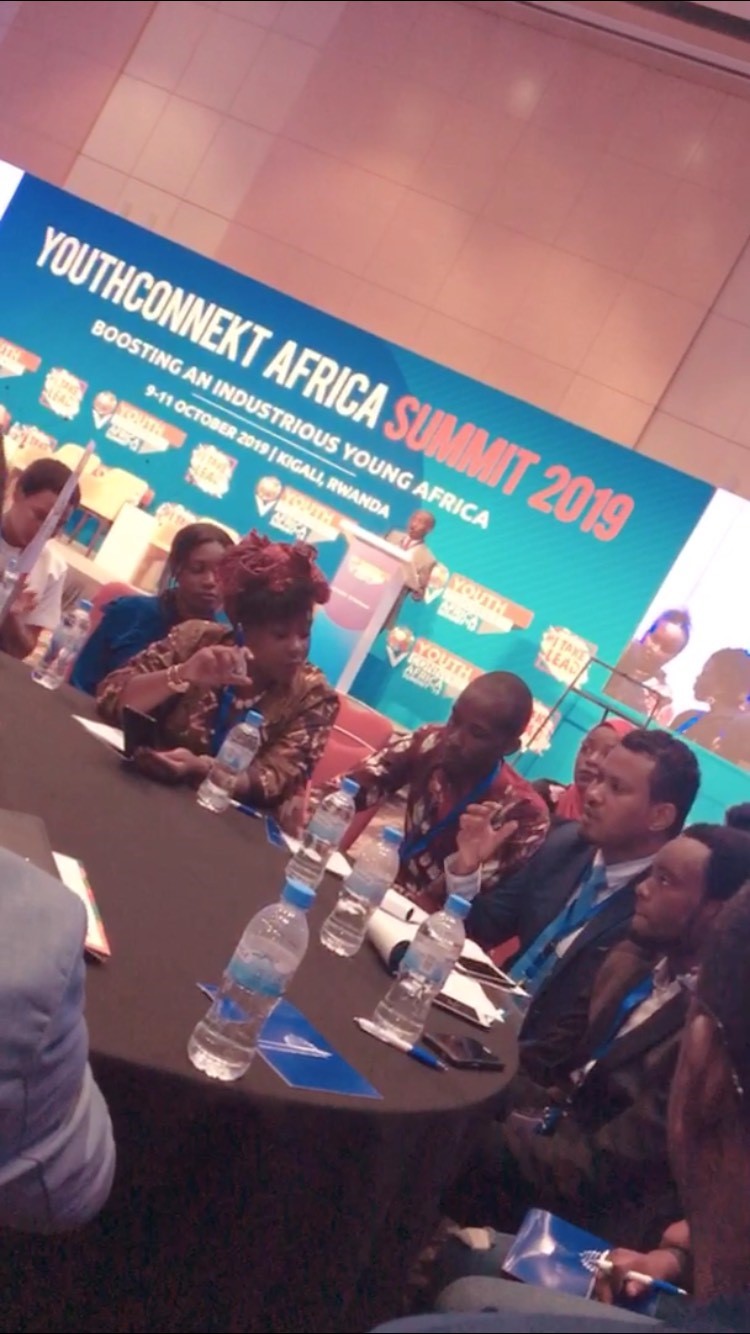Kigali, 21 October 2019-- Over 4,000 youth from across the Africa and some from other continents curious about and leading in entrepreneurship, technology, development convened at the third annual Youth Connekt Africa Summit to discuss practical ways of “boosting an industrious Africa.” There were a several side events and plenary sessions held. UN-Habitat organized an Urban YouthConnekt plenary session on Youth Innovations in Fragile States towards Peace and Resilience in Cities. The forum evaluated the challenges and opportunities in fragile states while providing recommendations for the development of the Africa Urban YouthConnekt strategy. The panel was curated to have youth at the center of developing recommendations in the audience and in the panel to not only contribute to recommendations made but evaluate their efficiency in addressing the challenges they presented.
Speakers from as diverse places as Somalia, Ethiopia, Gambia, Guinea-Bissau, Rwanda and Kenya shared the challenges in their respective sectors, and also highlighted some best practices that cut across various sectors such as jobs and entrepreneurship, education and skills, civic participation and leadership, gender- reducing gender inequality, technology and partnerships.
Governance Expert from the Sid Ali Baafo shared initiatives benefiting from the United Nations Peacebuilding Fund and carried out in partnership with UNFPA and UN-Habitat’s Somalia Programme to amplify youth voices and establish permanent mechanisms that ensure youth participation and representation in the political sphere. Mr. Baafo stated that the initiatives included, “establishing 3 district youth councils and 6 governance experts and 12 youth ambassadors at the ministerial level to ensure youth inclusion and priorities in policies.” Together, with the youth representatives on the panel, ideas around the process of establishing these mechanisms were discussed and options for replication and scaling up assessed. Lamine Marong from the National Youth Council in Gambia, emphasized that “enabling environments for youth to engage meaningfully in decision making are essential towards ensuring resilience in cities.” Towards this, the Commonwealth Secretariat’s Head of Social Policy Development, Mr. Layne Robinson it is “imperative to strengthen data collection especially in understanding youth priorities and challenges on the continent.”

William Apondo from the Stockholm Environment Institute (SEI) spoke with specific regard to climate change, an issue that all developing countries especially in Africa are more susceptible to its effect. Mr. Opondo highlighted the need to “and politicize and mainstream the detriments of pollution and improper waste management on the continent and youth’s pertinent role in ensuring that their governments are working to mitigate its risks.
The representative from the United Nations Office for South-South Cooperation (UNOSSC), Ms. Cynthia Olouasa, summed up the way capacity building initiatives and learning workshops at the national and regional level can bolster efforts that have already been implemented in different areas. She emphasized that “there just isn’t enough information shared about what is working and what isn’t. Hence, there is need for more coordinated efforts and literature to be shared about best practices. That is where we see UNOSSC taking more of an active role.”
The session was summed up by commitments on the way forward and Ms. Mutinta Munyati, Human Settlement Officer at the Regional Office for Africa summarized findings and highlighted the way forward and commitments made by the different organizations. This included, finalizing the Urban Youth Connekt Strategy, a memorandum of understanding with UNOSSC and SEI and developing best practices and sustainability plans of initiatives post implementation. She then appealed to the participants “to work with UN Habitat and other stakeholders in realizing their ambitious goals and follow up at the next Youth Connekt to evaluate the progress made.”